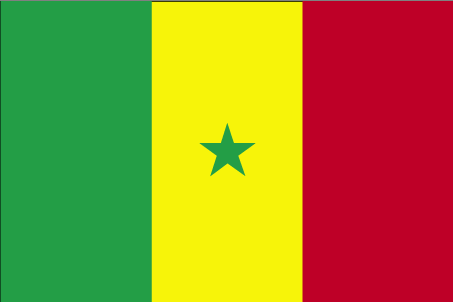Login form
Customs of Senegal
Marriage and Family
 Traditionally, marriages are arranged by the family, but in urban areas, individual choice of marriage partner has become more common. Senegalese are often encouraged to marry early, although it has become acceptable for college students to wait until they finish school. Some Muslims practice polygamy. Islamic law permits a man to have up to four wives, provided he can care for each equally and has the consent of the other wives.
Traditionally, marriages are arranged by the family, but in urban areas, individual choice of marriage partner has become more common. Senegalese are often encouraged to marry early, although it has become acceptable for college students to wait until they finish school. Some Muslims practice polygamy. Islamic law permits a man to have up to four wives, provided he can care for each equally and has the consent of the other wives.
In general, the family is a source of strength and pride in
Eating
Meals usually consist of one main dish of rice, millet, or maize, over which is served a sauce made of vegetables, meat (Muslims do not eat pork), poultry, fish, beans, or milk and sugar. A dessert of fruit and yogurt might be served. One popular dish is yassa (rice and chicken covered with a sauce of sliced onions and spices). Another is thiebou dien, a meal of fish and rice that is often eaten at lunchtime. A traditional Wolof dish is mbaxal-u-Saloum—a sauce of crushed groundnuts, dried fish, meat, tomatoes, and spices, served with rice. In urban areas, wealthier people enjoy French-style cuisine.
Generally, breakfast is between 6 and 9 am, lunch from 12 to 1:30 pm, and the evening meal is between 8 and 9:30 pm. In traditional homes, people eat in separate groups according to age and gender. The main dish is usually served in large bowls placed on mats on the floor or ground, or on coffee tables. Several people eat from the same bowl using the fingers of the right hand, or a spoon, depending on personal habit, the occasion, and the dish. Mealtime etiquette is taught to children at an early age—for example, they are taught that they should have clean hands, eat only from the portion of the communal dish directly in front of them, and avoid eye contact with persons still eating. Senegalese use only the right hand to eat, although the left may be used when necessary, but not to put food into the mouth—for example, fruit might be held in the left hand and peeled with the right. Occasionally, particularly when hosting Western visitors, some urban Senegalese follow French customs, eating at tables from individual plates with utensils. It is considered inappropriate to eat while on the street.
Socializing
In urban areas, the people commonly shake hands or kiss alternate cheeks up to three times (in the French tradition) when greeting or taking leave of others. In rural areas, a handshake is usual, although traditionally men do not shake hands with women. Upon parting, most Senegalese ask each other to extend best wishes to their families and mutual friends. Men and women keep their distance in public and are expected to be dignified and reserved around members of the opposite sex. Public displays of affection are considered impolite, although some urban young people hold hands. More informal behavior is acceptable with members of the same gender, age, or status.
Senegalese frequently visit friends and family, usually before the midday or evening meal. Work, health, family matters, and mutual friends are briefly discussed before a visitor addresses the purpose of the visit. There is considerable interest in politics and the exchange of ideas.
Friends will often bring gifts such as fruit or some cookies for the children. The host will usually offer a drink. Guests may decline politely by saying that they have just had one, but in general it is impolite to refuse refreshments. It is considered impolite to ask personal questions, and bad luck to ask specific questions about children, such as when a baby is due, how many children someone has, or what their ages are.
Recreation
Soccer is the most popular sport. Other favorites include traditional wrestling, basketball, track and field, and jogging. Many people in urban areas enjoy watching films and reading books. Concerts, discos, and videos are popular in areas with electricity. After the harvest, rural families visit relatives in urban areas. People in rural areas also enjoy dancing, as well as family and village celebrations.
Holidays and Celebrations
Islamic holidays follow the lunar calendar and fall on different dates each year. On Tabaski, the head of each household sacrifices a lamb in honor of Abraham’s willingness to sacrifice his son. Korite marks the end of Ramadan. The Korite feast can last for two days. Tamkharit, the Islamic New Year, is also the day on which, according to Muslim belief, Yallah (Allah) determines people’s destinies.
Source: Encarta Interactive World Atlas

